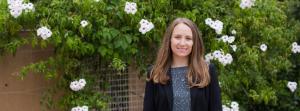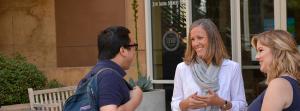Social Ecology hires two new faculty members to collaborate with Institute for Interdisciplinary Salivary Bioscience Research
May 2017
The School of Social Ecology has hired two new assistant professors, Jenna Riis and Kate Kuhlman, to work in the Department of Psychology and Social Behavior, effective July 1, 2017. Both will collaborate on research with the Institute for Interdisciplinary Salivary Bioscience Research as part of the School's effort to bring on professors to partner with the Institute.









